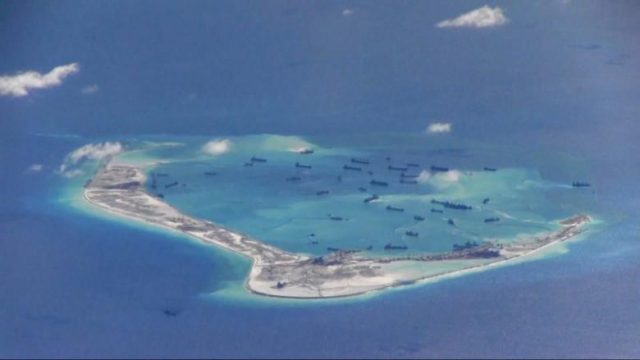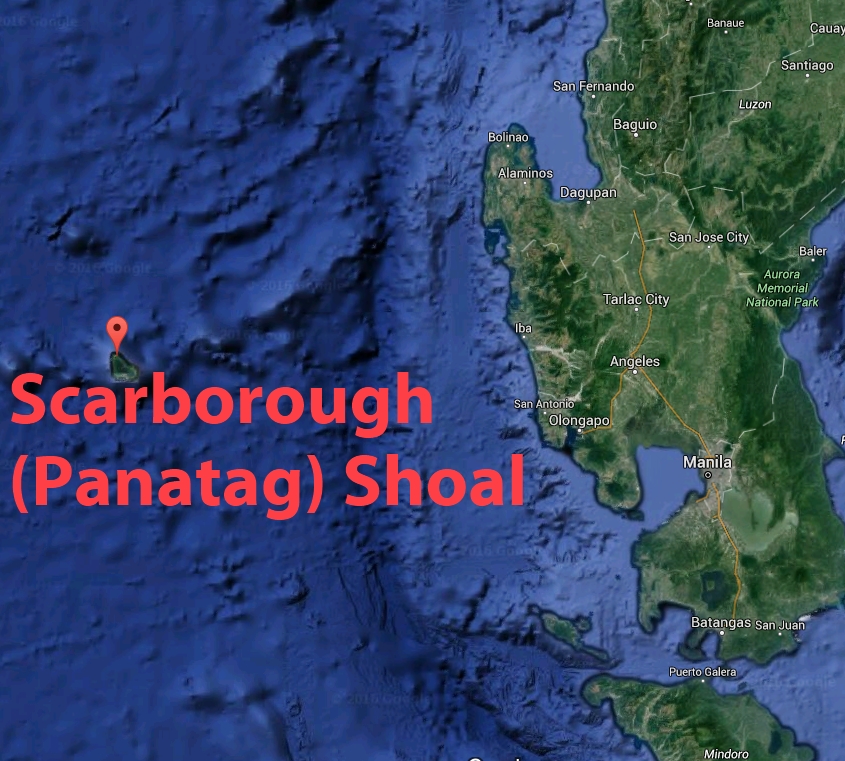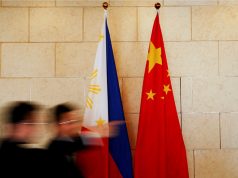MANILA – In November last year, Filipinos were allowed to fish once more in the disputed Scarborough Shoal after a visit to Beijing by President Rodrigo Duterte, with the Chinese coast guard no longer driving the Filipinos away in favor of protecting their own fishermen.
Although this seemed like good news, reported Dr. Jay Batongbacal, the director of the Institute for Maritime Affairs and Law of the Sea at the College of Law, University of the Philippines, what was overlooked was the fact that the Filipinos were allowed to resume fishing only in the outer periphery of Scarborough Shoal, which is not the safest place for them. Neither was this where they used to fish.
Rather, they used to fish inside the shoal, where the waters are calmer.
Not so calm at Panatag
Presumably, this is where the Filipino name “Panatag” Shoal comes from. They would take shelter from rough sea conditions here, and had not been allowed since then to re-enter the shoal. The Chinese coast guard, said Batongbacal, were always present in the area. There was also a report that the Chinese coast guard would board the Filipino boats and take a portion of their catch every now and then.
According to Batongbacal, despite the July 2016 United Nations arbitral award vindicating the Philippines’ claim to its own exclusive economic zone and continental shelf, which acknowledges that the primary beneficiary of all resources in the area should be the Philippines, China refuses to recognize it, especially in the absence of an independent and effective enforcement mechanism.
“This demonstrates the reality of what happens in a clash between legal right and raw power,” he said, in a talk about regional maritime security Friday at the New World Makati Hotel, organized by Konrad Adenauer Stiftung Philippines, the AIM Rizalino S. Navarro Policy Center for Competitiveness, and Ruhr University Bochum.
This situation was evident during the Philippines’ ASEAN chairmanship, with the country being considerate of China by “never ever” mentioning or discussing the arbitration despite the Southeast Asian region being most affected by it.
“Based on the last ASEAN summit, what you’ve seen is that basically China has gained the advantage, the upper hand,” Batongbacal added.
He pointed out that China even managed to create seven massive, concrete, reinforced artificial islands in the disputed waters in just two years.
Engineering marvels
“These engineering marvels have created more than 13 square kilometers of dry land in open ocean, burying formerly pristine and productive coral reefs under millions of tons of sand and cement,” Batongbacal said.
On these islands now stand “small, modern, urban communities, little cities, complete with all manner of facilities for comfortable living: streets, office buildings, residential apartments, a track and field, even a basketball court,” he continued. “But they also host less than comfortable things, as well. Command and control posts, radars, guns … missiles, hangars for war planes, and runways that can be used for everything, from a light plane to a fighter jet, to a nuclear bomber, to a space shuttle.”
In the face of such power, he remarked, the Duterte administration had not done much publicly.
“After all, in the words of our colorful and courageous President, ‘What can we do about it?'” Batongbacal said. This was the same attitude the government had towards the Hague ruling.
In spite of a renewed friendship between the two countries, did the Philippines really gain much from keeping silent on the decision?
In reply, Batongbacal pointed to the “billions of dollars’ worth of promises and feasibility studies, and offers of a lifetime’s worth of loans with high interest for infrastructure projects.”
“On one hand, cooperation is good, as it may indeed provide the means for better communications, the building of trust, and perhaps the creation of sufficient understanding that we could actually address these disputes in a way that moves from a glacial pace to a revolutionary rapid … rates of the common snail,” he said.
Batongbacal continued, “On the other hand, too much cooperation too early and too forced in the absence of trust could also be very bad. Should we not challenge the wisdom of seeking more and more loans with conditions less competitive than those of other potential partners?
Qualitatively imbalanced
“Should we not question the promotion of qualitatively imbalanced trade relationships where the country exports more and more of its raw materials, and imports more and more high-value manufactured goods?
“Should we not hesitate at the prospect of bringing in mega-projects tied to specific foreign, state-owned firms bringing in their own labor forces, extending their own finances, and then leaving us to pay back the amortizations and higher interests?
“And, should we not doubt the propriety of purchasing more and more firearms and assault weapons that seem to be more useful for the authoritarian control and operations than simply keeping law and order?”
He cautioned that this may lead to national economic bondage, political dependence, and China’s unwarranted influence over the Philippines’ decision-making.
“The concern of the observers of this issue is what’s happening on the ground. Will the arbitration by the time that it is actually raised really be a substantive discussion that will create changes in policies … or will it really be just a piece of paper?” he asked.
Based on their interactions with fishermen, Batongbacal found that Chinese fishing activity appeared to have even increased in the Philippines’ EEZ.
Petroleum exploration
The Philippines had also stopped exploration for petroleum in the West Philippine Sea. Instead, there are now ongoing discussions for a joint development of the area with China.
“We could say that it really is a pragmatic decision … but on the other hand, given the vindication of our rights and the situation before that … by doing so, (are) we actually giving up on … the benefit of arbitration?” Batongbacal asked.
Yes, the tensions brought about by the dispute over the South China Sea had decreased because of Duterte’s “friendship policy”. But at what cost?
“The key there is to account for the cost,” Batongbacal said.
He also urged the media to visit the disputed areas and check on the situation of the Filipino fishermen to see whether the ties between China and the Philippines had indeed been beneficial to them.











